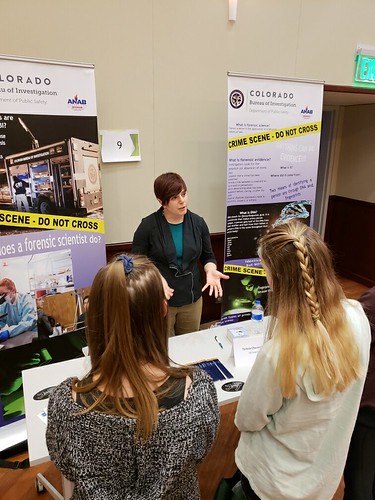Ysicians in society, especially concerning attributes that reflect the core of
Ysicians in society, specifically concerning attributes that reflect the core from the doctorpatient connection. Within this context, it is actually critical to know trainees’ perspectives on what constitutes professionalism. From a topdown viewpoint, these residents’ culture and core values will inform professionalism standards within the future for emergency medicine. From a bottomup consideration, it is actually significant to measure a baseline set of values to inform and prioritize educational goals. Despite its significance, there have already been couple of studies examining the values that get 3-Amino-1-propanesulfonic acid residents place on distinct elements of professionalism and none focusing solely on EM trainees.70 The key objective of this study was to explore current common conceptualizations of professionalism amongst EM residents by assessing the relative worth these trainees place on numerous professionalism attributes. The secondary objectives have been to compare interns’ and seniors’ responses as a proxy of how of clinical and coaching experiences in EM may possibly shape these values and to evaluate resident responses across 4 different websites to explore potential web-site or regionspecific variations. Solutions Study Style and Population This crosssectional study surveyed a comfort sample of incoming and graduating residents at 4 EM residency programs representing the South (A), West (B), Midwest (C) and Northeast (D) regions of the United states. In 20, incoming residents were polled throughout the initially two months of their internship and graduating residents have been polled within two months of graduation. Survey Instrument Using the American Board of Internal Medicine’s (ABIM’s) “Project Professionalism” and the ACGME’s definition of professionalism competency as guiding frameworks, we identified seven domains of professionalism (clinical excellence, humanism, PubMed ID:https://www.ncbi.nlm.nih.gov/pubmed/12678751 accountability, altruism, duty and service, honor and integrity, respect for other people) to be represented in the survey. Project Professionalism was a complete multiyear undertaking by the ABIM to provide a modern day definition, raise awareness, and guide education and assessment. Similarly, the ACGME’s definition is really a core element of an initiative designed jointly with all the American Board of Medical Specialties to determine crucial educational elements of doctor competency.2 Each and every domain had quite a few certain attributes and every single attribute was represented by an individual item. All items had been developed by means of an iterative procedure by EM faculty right after a assessment in the literature and published requirements of professionalism. Subjects were asked to rate, on a 0pointWestern Journal of Emergency  MedicineJauregui et al. scale, to what extent every of 27 attributes contributed to their idea of healthcare professionalism with “none” and “completely” used as anchors at each finish on the scale. Additionally, subjects had been asked no matter if professionalism was teachable in health-related college or residency and whether or not these attributes might be assessed. We collected extra demographics, including residency location and year of education. We pilot tested the survey with 0 intern and senior internal medicine and EM residents at a single site for response procedure and for clarity.three Feedback was incorporated into the final draft, and adaptations of items for the finalized instrument had been based upon group consensus from the authors. Both the draft and final instruments had a total of 27 products. The survey instrument is provided in Appendix A. Immediately after the study was completed, in order.
MedicineJauregui et al. scale, to what extent every of 27 attributes contributed to their idea of healthcare professionalism with “none” and “completely” used as anchors at each finish on the scale. Additionally, subjects had been asked no matter if professionalism was teachable in health-related college or residency and whether or not these attributes might be assessed. We collected extra demographics, including residency location and year of education. We pilot tested the survey with 0 intern and senior internal medicine and EM residents at a single site for response procedure and for clarity.three Feedback was incorporated into the final draft, and adaptations of items for the finalized instrument had been based upon group consensus from the authors. Both the draft and final instruments had a total of 27 products. The survey instrument is provided in Appendix A. Immediately after the study was completed, in order.